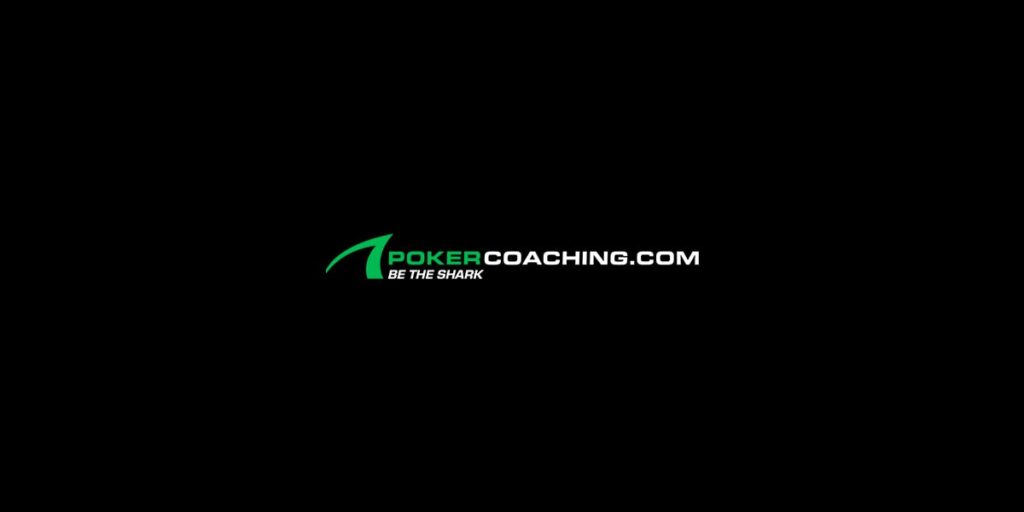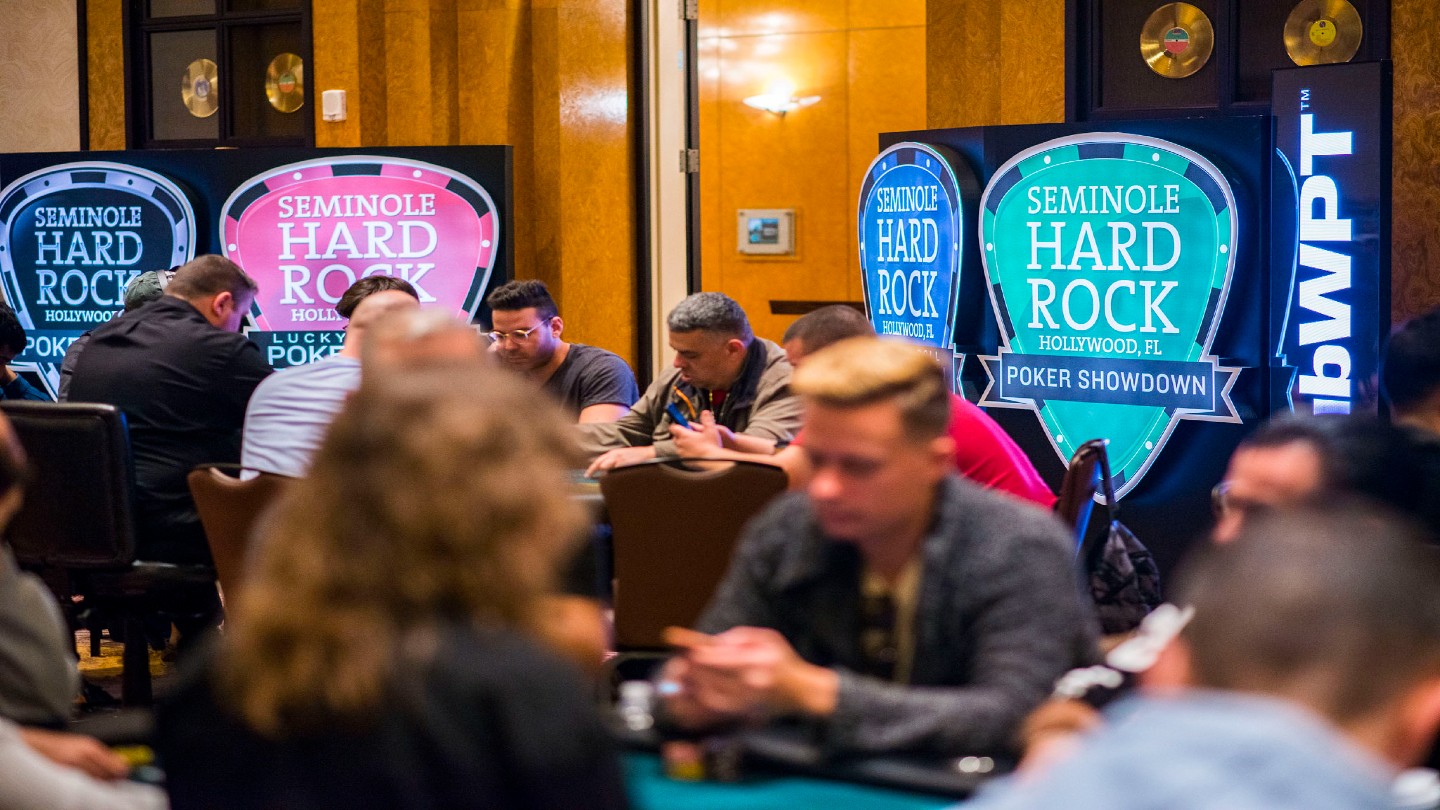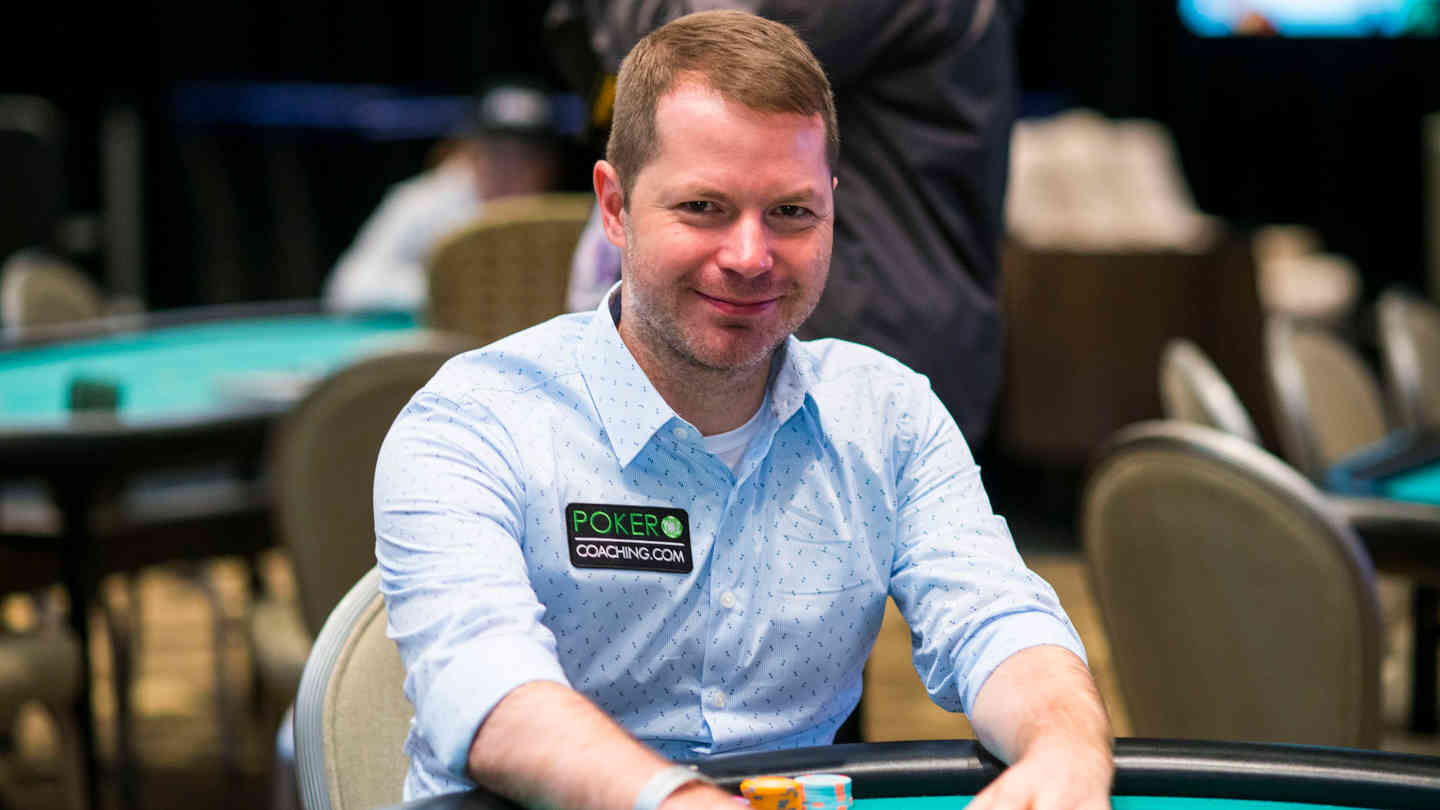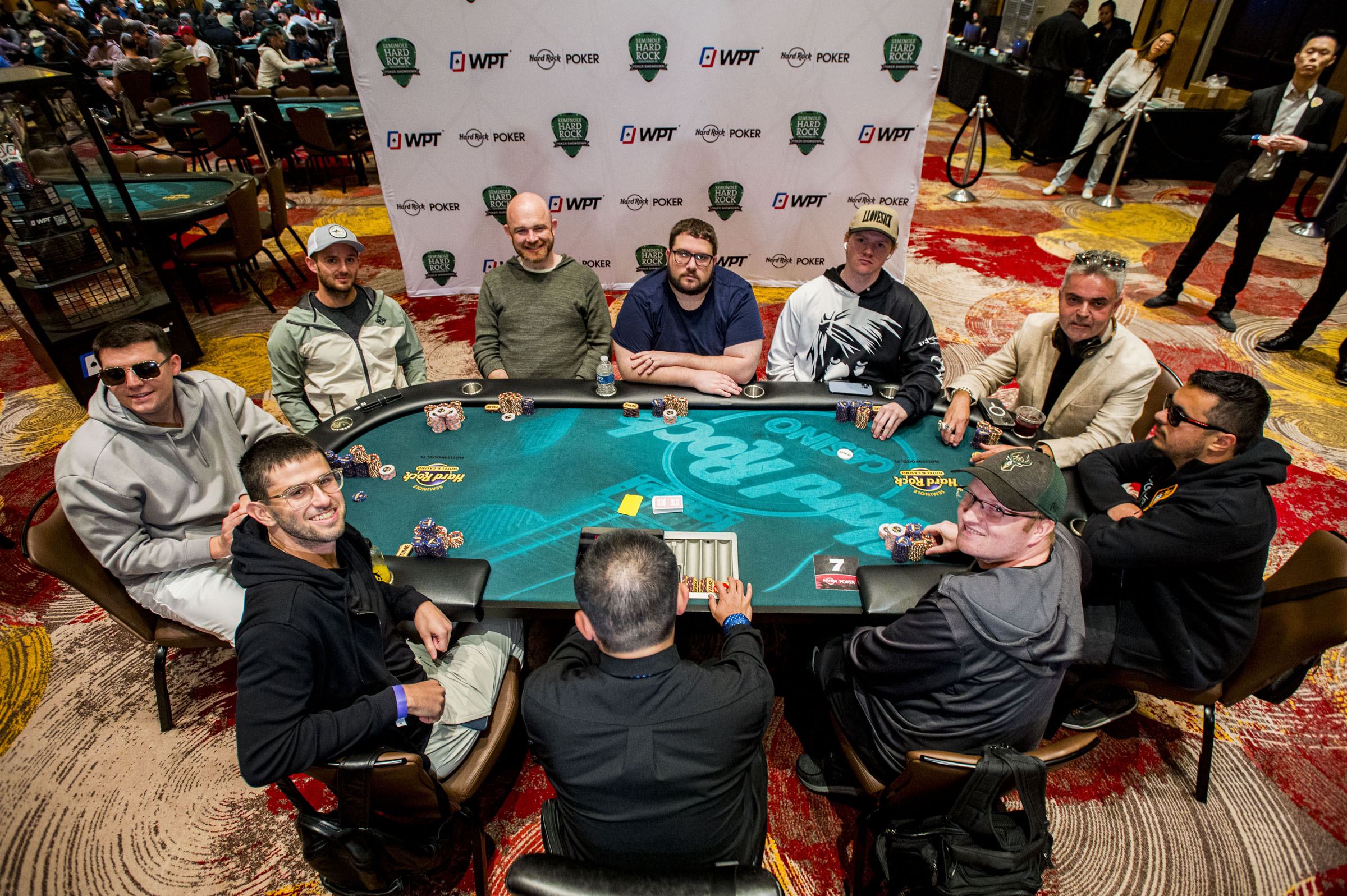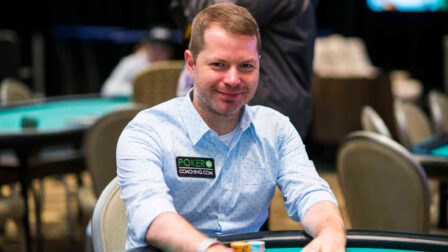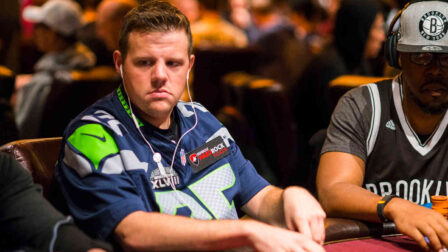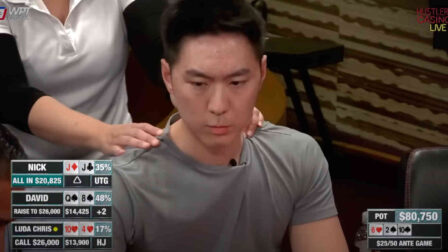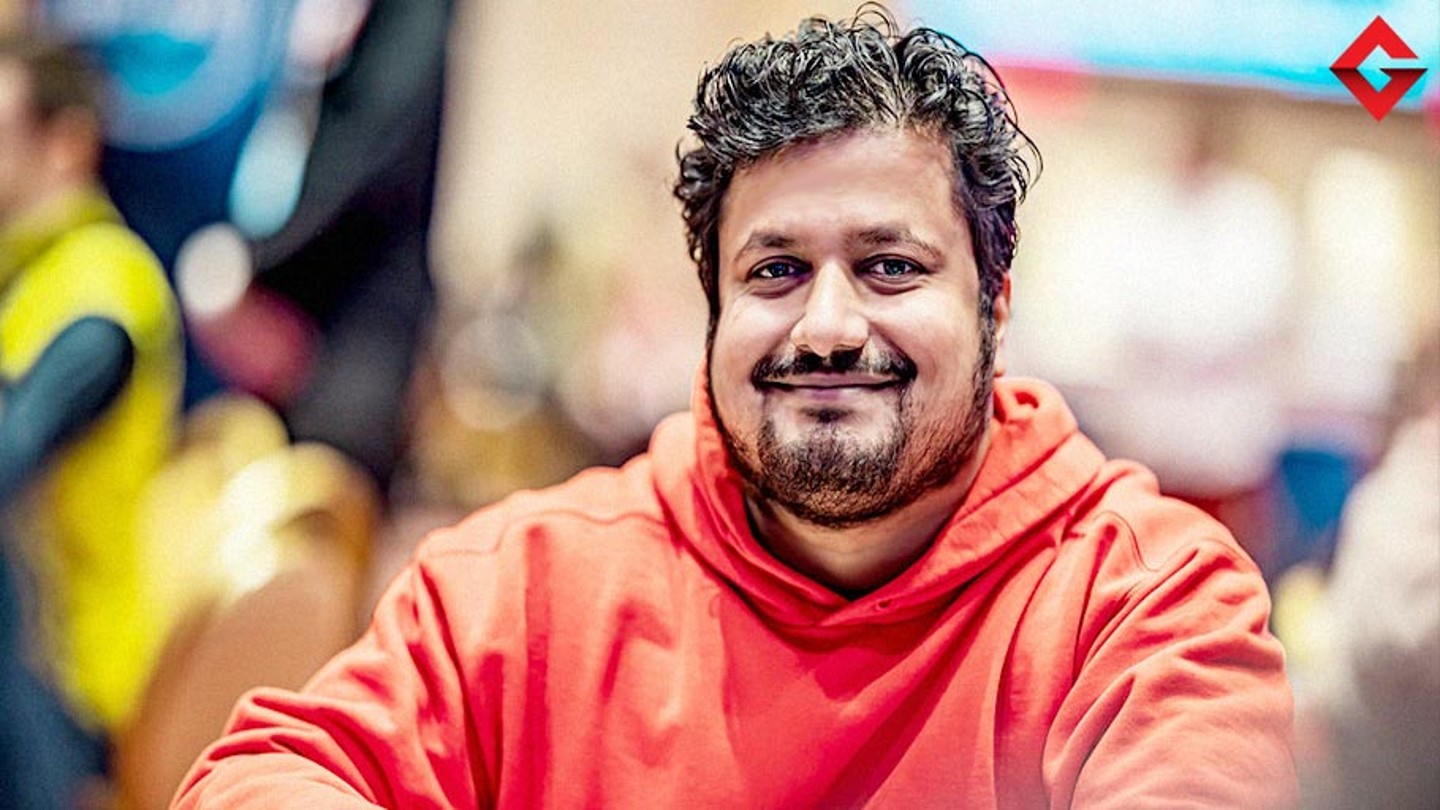Jonathan Little Hand of the Week: Phil Ivey Takes on Vogelsang
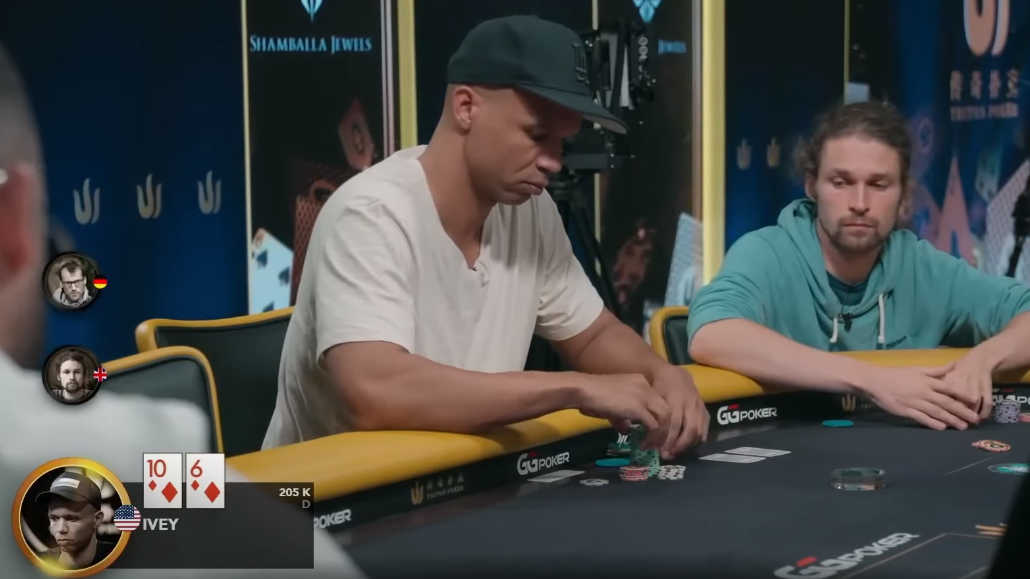
4 minutes
Last Updated: March 17, 2024
If you want to increase your edge at the tables, make sure to get your FREE 3-day pass and check Pokercoaching.com.
…
For this week, we have one interesting hand and not one, not two, but three poker legends battling it out in a $200,000 Triton Super High Roller Series event.
The action starts with blinds at 3,000/6,000/6,000, and Phil Ivey raises from the button to $13,000 with 10♦6♦, starting the hand with 34 big blinds.
Bean Heath in the small blind makes the call with 5♠5♦, as does Christoph Vogelsang in the big blind with 7♣6♣.
Heath’s call is fairly standard here. He could consider moving all in here, but Vogelsang sitting behind has 45 big blinds, so if he wakes up with a big hand, it will be really bad for Heath. As for Vogelsang, he has a very easy call with his hand.
The Flop
The first three community cards are 10♣8♣3♦, promising some action. Heath is first to act, and he checks, and so does Vogelsang with his straight flush draw.
This is one of the spots where leading out may be viable. If he bets out and gets raised, he can just move all in on the strength of his draw. Of course, checking and playing in flow is a perfectly reasonable option as well.
Ivey decides to fire a continuation bet, which I’m not sure is the best option in the spot where you have a weak top pair on the board that connects very well with your opponents’ calling ranges.
Betting is still a perfectly viable option, though, especially betting small, which is exactly what Ivey does as he makes it 16,000 into a 45,000 pot.
Ben decides to call with pocket fives, and while I’m sure his decision is correct, it just feels like you don’t want to be calling here without at least a 5♣ in your hand.
The action now gets to Vogelsang, who has a bit of a decision to make. What would you do in his spot, with a straight flush draw and facing a bet and a call?
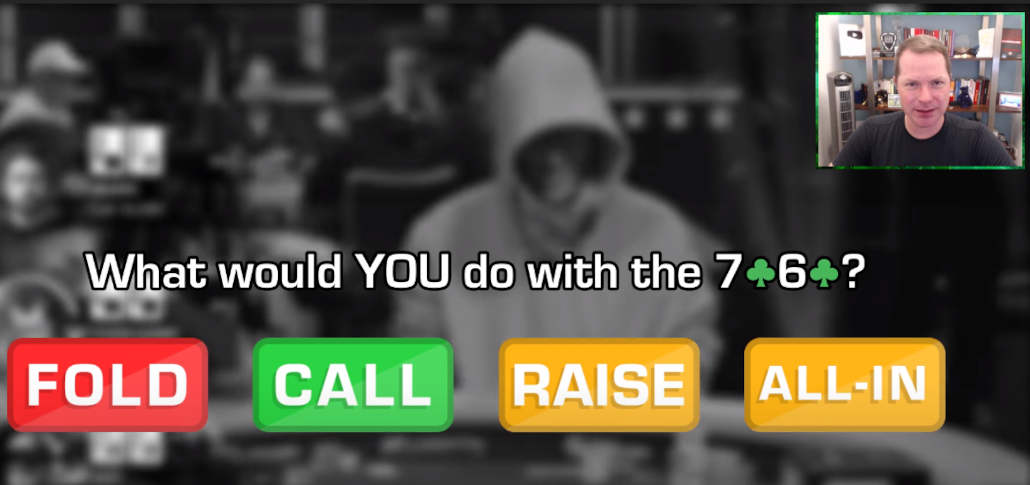
Vogelsang has a couple of options here, and folding isn’t one of them. Raising small also doesn’t make much sense, as he doesn’t want Ivey to jam over his raise, which he will do some portion of the time.
So, it’s a choice between jamming and calling, and I think calling is a better option with a high equity draw, and that’s exactly what Christopher settles on after giving it some thought.
The Turn
The 8♥ on the turn is an interesting card. Heath checks and I think, with his hand and given the situation, checking with the intention to give up is the most reasonable option.
Vogelsang now decides to lead out for 55,000, which is about half of the pot. So, why would he bet with a 7-high?
In this situation, Vogelsang is the player who’ll have a lot of eights in his range – many more than Ivey, who probably wouldn’t c-bet the flop with many hands containing just an eight. And, since Heath didn’t lead himself, it’s not likely he has trips, either.
If he will bet out with an eight in this spot, then he also needs to have some bluffs in his range.
I do think that this particular draw may have a bit too much equity to be used as a lead, as you’ll have to fold if you get jammed on, which would be a bit of a disaster.
That said, Ivey doesn’t have an eight here all that often, and most people don’t raise the turns as much as they should according to the GTO strategy, so leading out in this spot is still very good.
Ivey now finds himself sitting with what’s essentially become a bluff-catcher. Vogelsang will have some eights and even some better tens in this spot, and he still has to worry about Ben Heath.
It’s a complex situation, and I’m not really sure what the best play is here, but Ivey makes the call, so I’m going to assume that’s the right thing to do. Heath mucks his hand, leaving the two heads-up.
The River
The river comes the K♥, so Vogelsang bricks his draw. It is still a fairly good card for him, as many of his flush draws will contain a king, but it really depends a lot on what his leading range looks like on the turn.
This is one of those spots where many high-rollers tend to over-bluff, but 7-high is the perfect bluffing candidate, given it has zero showdown value. So, Vogelsang does move all in and puts Ivey in a really tough spot.
Ivey is getting great odds to make the call, but it is for his tournament life. All the draws have bricked, and the question is, how many value hands does your opponent have compared to all the bluffs they might be inclined to shove with on this river?
Ivey is one of the best players of all time, but can he crack this puzzle and come up with the right solution? Check out the video above to find out!



